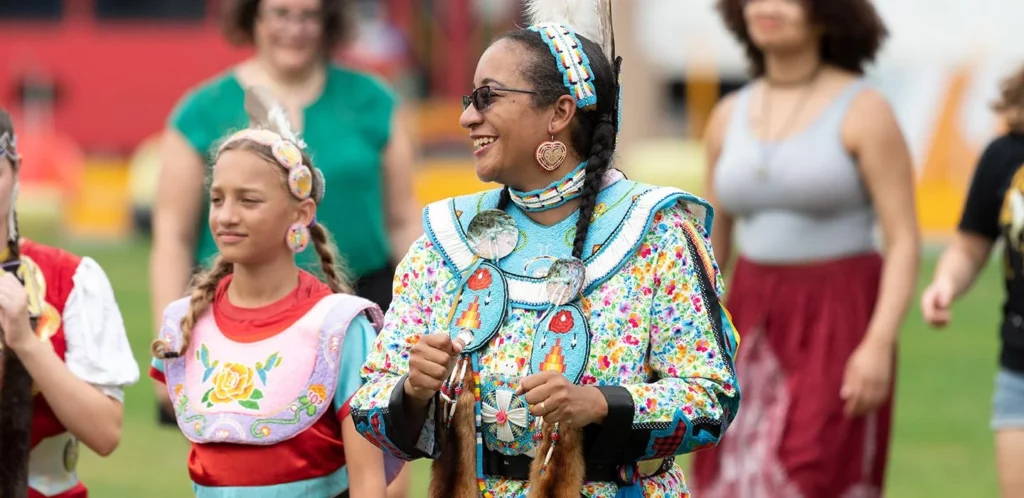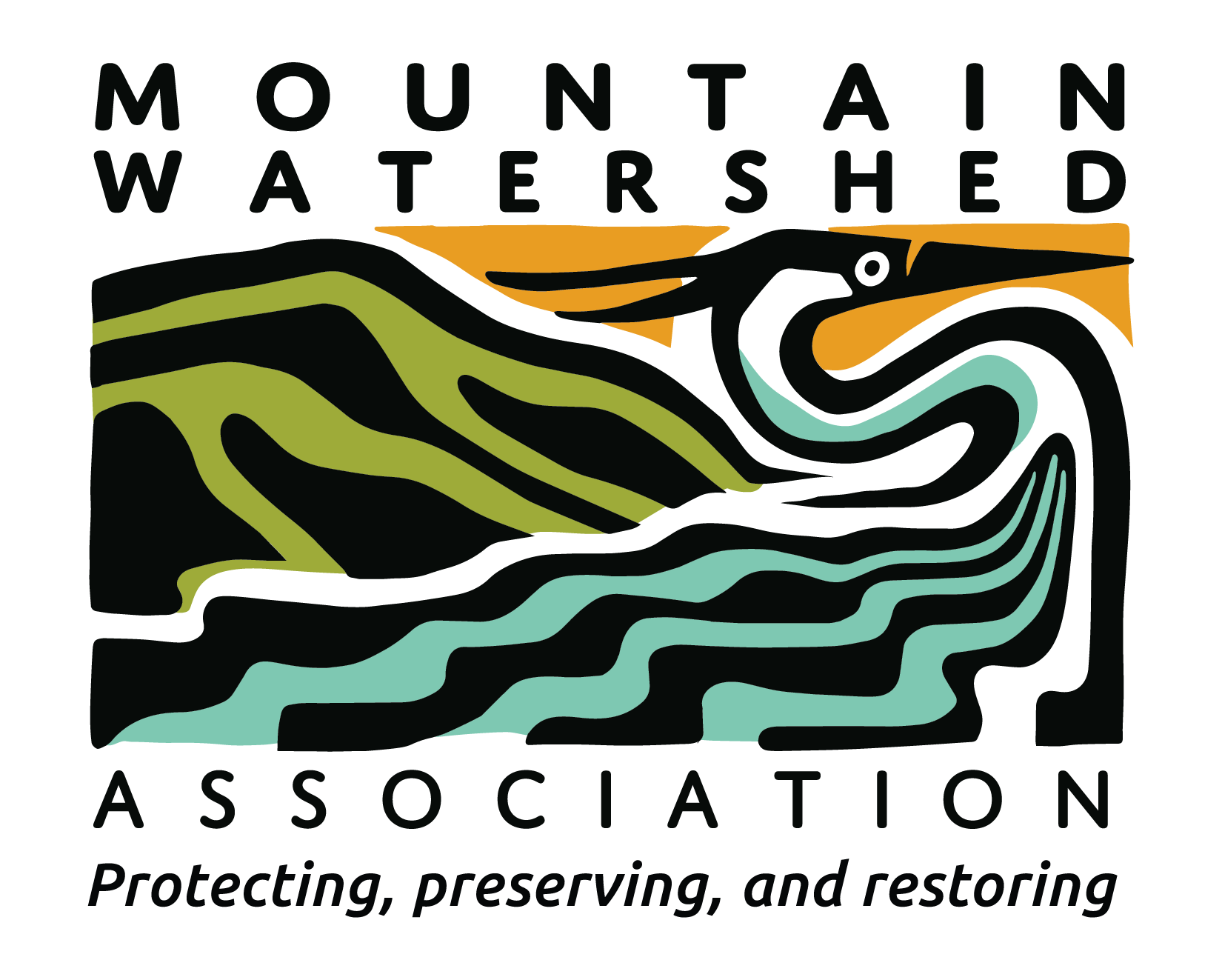
Indigenous Peoples Day honors the cultures and histories of the original inhabitants of the US. How will you spend the day?
The second Monday in October is typically known as “Columbus Day,” a day to celebrate the European exploration of the Americas. But Columbus was not the first foreign explorer to land in North America. Neither he nor those that came before him discovered this continent—because Indigenous Peoples have populated the Western Hemisphere for tens of thousands of years. And yet, European contact resulted in devastating loss of life, disruption of tradition, and enormous loss of lands for Indigenous Peoples in the Americas. It is estimated that in the 130 years following first contact, Native America lost 95 percent of its population.
But Indigenous people are still here. According to the most recent census data, tens of thousands of Indigenous people live in Pennsylvania. Many of them are descendants of the region’s original inhabitants, the Lenape (also known as Delaware) tribe and the Susquehannock tribe. Others may be descendants of the Nanticoke and the Shawnee tribes who migrated to Pennsylvania from other regions after the Europeans arrived.
(Read this article for more background on Pennsylvania’s Indigenous people.)
Pennsylvania is one of the few states that does not have a federally recognized Native American tribe or any tribal reservations. The state also does not officially recognize Indigenous Peoples’ Day, a day with roots that go back to 1977 at a United Nations international conference on discrimination. South Dakota was the first state to officially recognize the day in 1989. President Joe Biden issued a proclamation commemorating the day, declaring Oct. 11, 2021, Indigenous Peoples’ Day.
The city of Pittsburgh could soon formally dedicate the second Monday of every October as Indigenous Peoples’ Day.
Councilwoman Barb Warwick, D-Greenfield, who sponsored the legislation, said the city needs to acknowledge the past and present mistreatments of indigenous communities.
“I think it sort of goes without saying that, as a nation, we recognize the atrocities committed against our indigenous communities,” she said.
While the day is not a state holiday, many events throughout Pennsylvania honor and celebrate Indigenous Peoples’ Day. Check them out below, or spend the day in quiet reflection with this list of books from the Carnegie Library of Pittsburgh. You can also learn more about Indigenous cultures at the Council of Three Rivers American Indian Center, which promotes the socio-economic development of the Native American community and others who experience the same type of economic difficulties in the Greater Pittsburgh metropolitan area. Or get active and sign the Lenape Nation of Pennsylvania’s petition for state recognition.
Upcoming Events:
Resistance Day Rally
Monday, Oct. 9, noon to 1 p.m., Old Main steps, Penn State
Members of the Indigenous Peoples’ Student Association will lead a celebration and testimonial event on the importance of Indigenous Peoples Resistance Day. The rally will feature short performances by the Akwesasne Women Singers, the Jake George Family and Las Cafeteras, and artists will share their thoughts on what it means to resist from the assembled crowd. No registration is required; visit the Rally Event webpage for more information. The event is presented in collaboration with the Center for the Performing Arts, Student Affairs, Educational Equity, and the Indigenous Faculty and Staff Alliance.
Indigenous Peoples Day Feast
Monday, Oct. 9, 7:30-9:30 p.m., Heritage Hall, HUB-Robeson Center, Penn State
Join the Indigenous Peoples’ Student Association, Indigenous Faculty and Staff Alliance, Hispanic Heritage Month Committee, and the Center for the Performing Arts in a celebration of Indigenous Peoples Day. The Indigenous Peoples Day Feast will feature a smoke dance exhibition by the Jake George Family, short performances by Las Cafeteras and the Caliente Dance Company, and a Haudenosaunee Social by the Akwesasne Women Singers. Food using Indigenous recipes will be provided. The event is free, but you must register in advance to attend the feast.
Indigenous Peoples Weekend at The Museum of the American Revolution
Explore Native American history, culture, and their role in the American Revolution at Indigenous Peoples Weekend. Activities include traditional Lenape dancers, crafts, talks, and gallery exhibits. Also, living history interpreters will share stories about their culture, costuming, and traditions and engage guests in conversation about the past, present, and future of their people.
Date: Saturday, Oct. 7 to Monday, Oct. 9, from 10 a.m.-5 p.m.
Admission: Included in regular admission to the museum; advanced ticketing is recommended.
Location: 101 S. 3rd St., Philadelphia
Native American Gathering at Community College of Beaver County
The two-day Native American Gathering at CCBC offers opportunities to learn about the history of Indigenous people in Beaver County and attend the Native American Gathering at the Dome at the college. Performances include traditional dances and drums throughout the day. Attendees are welcome to bring drums.
Date: Saturday, Oct. 14, from 10 a.m-10 p.m. and Sunday, Oct. 15, from 10 a.m.-5 p.m.
Admission: $5 for adults, $4 for seniors 62+ and veterans; $3 for ages 6-12
Location: The Dome at CCBC, 1 Campus Dr., Monaca, Beaver County
Museum of Indian Culture
The Museum of Indian Culture is a volunteer-run, nonprofit resource center that educates visitors on Native American cultures. It’s not hosting a specific Indigenous Peoples’ Day event, but the museum honors and celebrates Native Americans all year. Visitors to the museum can participate in guided tours and educational programs, and walk the Lenape Trail. Along the trail, scannable codes lead to free online information and fun.
Date: Any day the museum is open, Friday through Sunday from 10:00 a.m.-4:00 p.m.
Admission: $5 for adults, $4 for seniors and children 12-17. Free for children under 12.
Location: 2825 Fish Hatchery Rd., Allentown, Lehigh County

